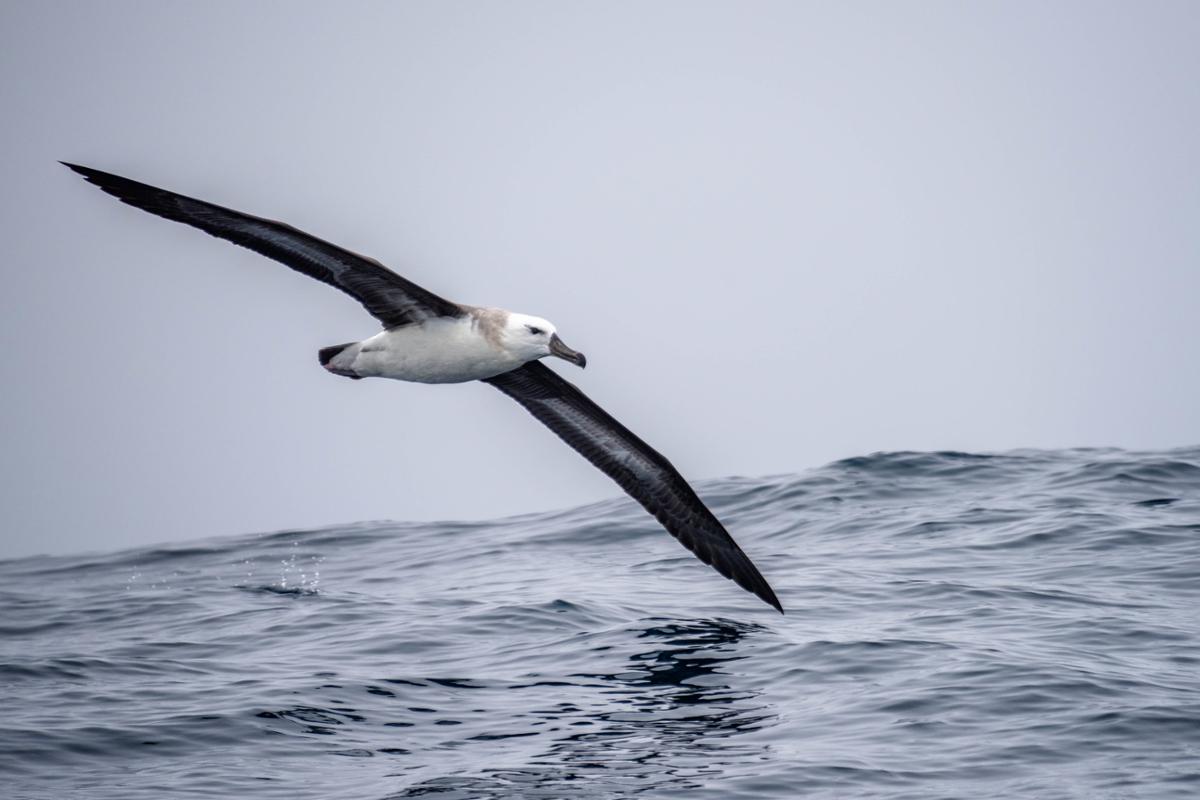In early 2021, bird-lovers everywhere celebrated an important birth: Wisdom, an albatross in Hawaii, hatched another chick. No small feat for the world’s oldest wild bird; motherly Wisdom is at least seventy years old!
Unfortunately, Wisdom’s longevity is out of reach for many seabirds. Each year, hundreds of thousands of seabirds die in fisheries. This unintended mortality is known as bycatch, and it has inspired efforts at conservation.
Albatrosses such as Wisdom are remarkable creatures: they can fly thousands of miles in search of food, and one species, the Wandering Albatross, has an impressive eleven-foot wingspan. But many albatross species are endangered because of bycatch. They’ll follow fishing vessels to eat unwanted fish and offal thrown overboard; they’ll also try to steal the bait from fishing hooks. Like other scavenging seabirds, they get caught on hooks, injured when they hit trawler cables, or entangled in fishing nets. Worldwide, hordes of ravenous birds descend on fisheries in hopes of a quick meal, but many don’t make it out alive.
Fisheries and conservationists alike hope to reduce bycatch, and they’ve begun implementing some creative solutions. Bright ribbons tied to ropes and cables discourage albatrosses from approaching the back of the vessel, and setting fishing lines at night means fewer albatrosses are awake and hungry. Ships can also avoid throwing out unwanted fish or waste when trawling, reducing the risk posed by cables.
Wisdom the septuagenarian seabird is aptly named: with seven decades of experience, she’s learned to wisely hunt and survive, despite the threat of bycatch. With continued conservation, we hope to see more albatrosses soaring over the high seas.










